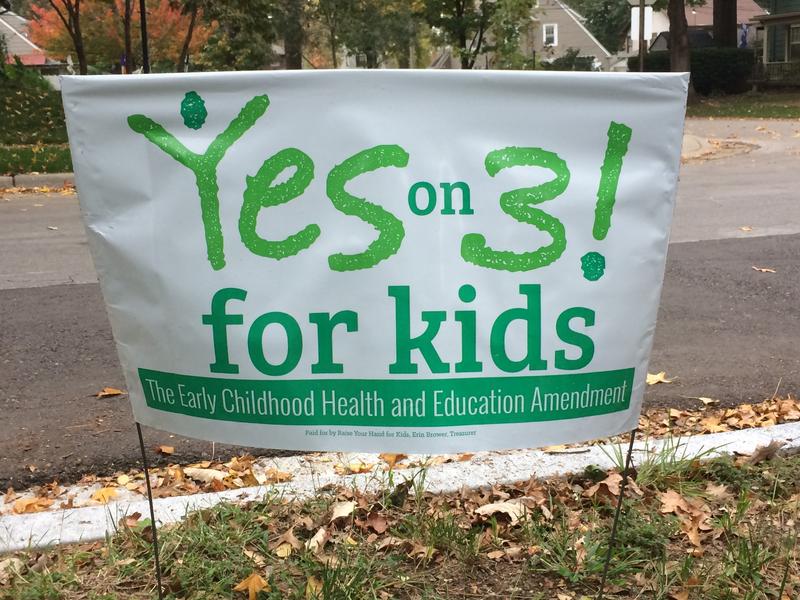Take 5 For Your Health A Quick, Clickable Roundup Of Health News From Our Region — And Beyond — For The Second Week Of November
 In this Jan. 23, 2008, file photo, Barrington Lloyd smokes a cigarette at a bar in St. Louis. Missouri's extraordinarily low tobacco tax will rise if at least one of two ballot measures passes today. (Photo: : Jeff Roberson | AP)
In this Jan. 23, 2008, file photo, Barrington Lloyd smokes a cigarette at a bar in St. Louis. Missouri's extraordinarily low tobacco tax will rise if at least one of two ballot measures passes today. (Photo: : Jeff Roberson | AP)
Published November 8th, 2016 at 6:00 AM
Guess Who Supports And Who Opposes Tax Increases On Cigarettes In Missouri
For many Missouri health advocates, an increase in the state’s tobacco tax is long overdue.
At 17 cents per cigarette pack, it’s the lowest in the country by far – a fraction of the tax in many states. And it hasn’t changed since 1993.
Groups like the American Lung Association say Missouri’s low cigarette prices are a major reason the state has one of the highest smoking rates in the country. Twenty-two percent of Missouri adults smoke, according to the Centers for Disease Control and Prevention.
Missourians will today decide whether to approve not one but two tobacco tax increases. Perversely, however, health groups are urging voters to leave the tax unchanged while tobacco companies are spending a fortune to get the increases passed.
The tax increase is being promoted as a way to expand early childhood education. In Missouri, just 19 percent of 4-year-olds attend a preschool or Head Start program.
— Alex Smith is a reporter for KCUR, a partner in the Heartland Health Monitor team, which also includes KCPT, and KHI News Service, an editorially independent initiative of the Kansas Health Institute.
Missouri Patients on Ventilators are Leaving the State for Care. Here’s Why.
For three months, 32-year-old Tara Hegger has lived in the intensive care unit at Mercy Hospital.
She passes the time listening to music, visiting with family members and watching TV, mostly comedies. They keep her mind off of a painful decision that inches closer every day.
“The social worker came to me and basically told me I had to leave, because my days ran out,” Hegger said, pausing between the pumps of oxygen provided by a ventilator next to her. “I had to make a choice.”
Like other Missouri patients in her situation, she will have to leave the state to find a nursing home that accepts her insurance — a dilemma tied to the state’s low Medicaid reimbursement rate for long term care.
— Durrie Bouscaren is a reporter with St. Louis Public Radio
KU Scientist’s Work On Antibiotic Resistance Wins Prestigious Award
A University of Kansas scientist has been named one of the first recipients of an $825,000 fellowship for her work in developing a protein designed to thwart antibiotic resistance.
Joanna Slusky, 37, who heads the Slusky Lab at KU and specializes in outer membrane proteins, is one of five inventors nationwide recognized by the Gordon and Betty Moore Foundation in Palo Alto, California.
The foundation, established by the co-founder of Intel Corp. and his wife, anticipates awarding a total of $33.75 million to support 50 promising inventors over the next 10 years, according to its website. Slusky is part of the first cohort announced today.
Slusky is an assistant professor of computational biology and molecular biosciences at KU. She was recruited there two years ago after completing postdoctoral work at Stockholm University and the Fox Chase Cancer Center in Philadelphia. She received her Ph.D. in biochemistry and molecular biophysics from the University of Pennsylvania.
— Dan Margolies, editor of the Heartland Health Monitor team, is based at KCUR. You can reach him on Twitter@DanMargolies.
Disability Support Providers Question Success Of KanCare
A public letter by the head of the Kansas Department for Aging and Disability Services praising KanCare’s effect on Kansans with disabilities has drawn a string of rebuttals from people who provide disability services.
Tim Keck’s letter was published Oct. 24 on the Wichita Eagle editorial page.
In it, the interim KDADS secretary said KanCare — the state’s move to privatize Medicaid under the administration of three insurance companies — has improved the lives of Kansans with disabilities and that the state’s safety net is strong.
Kansans with disabilities are receiving 36 percent more home and community-based services and making 29 percent fewer trips to the emergency room since KanCare began, according to Keck.
“The health concerns of the disabled are being addressed earlier and more effectively than they had been under the old system,” he said in his letter.
Keck’s letter was itself a rebuttal to an editorial by Gary Blumenthal that the Eagle published a week earlier.
— Andy Marso is a reporter with KHI News Service
From PBS NewsHour
Dire dental problems and other health issues keep the nonprofit Remote Area Medical busy running free clinics, particularly in states that didn’t expand Medicaid. Even after Obamacare, large coverage gaps still exist in the nation’s health care system. Special correspondent Sarah Varney reports from southwestern Virginia, an impoverished region where many still turn to charity for basic needs.




